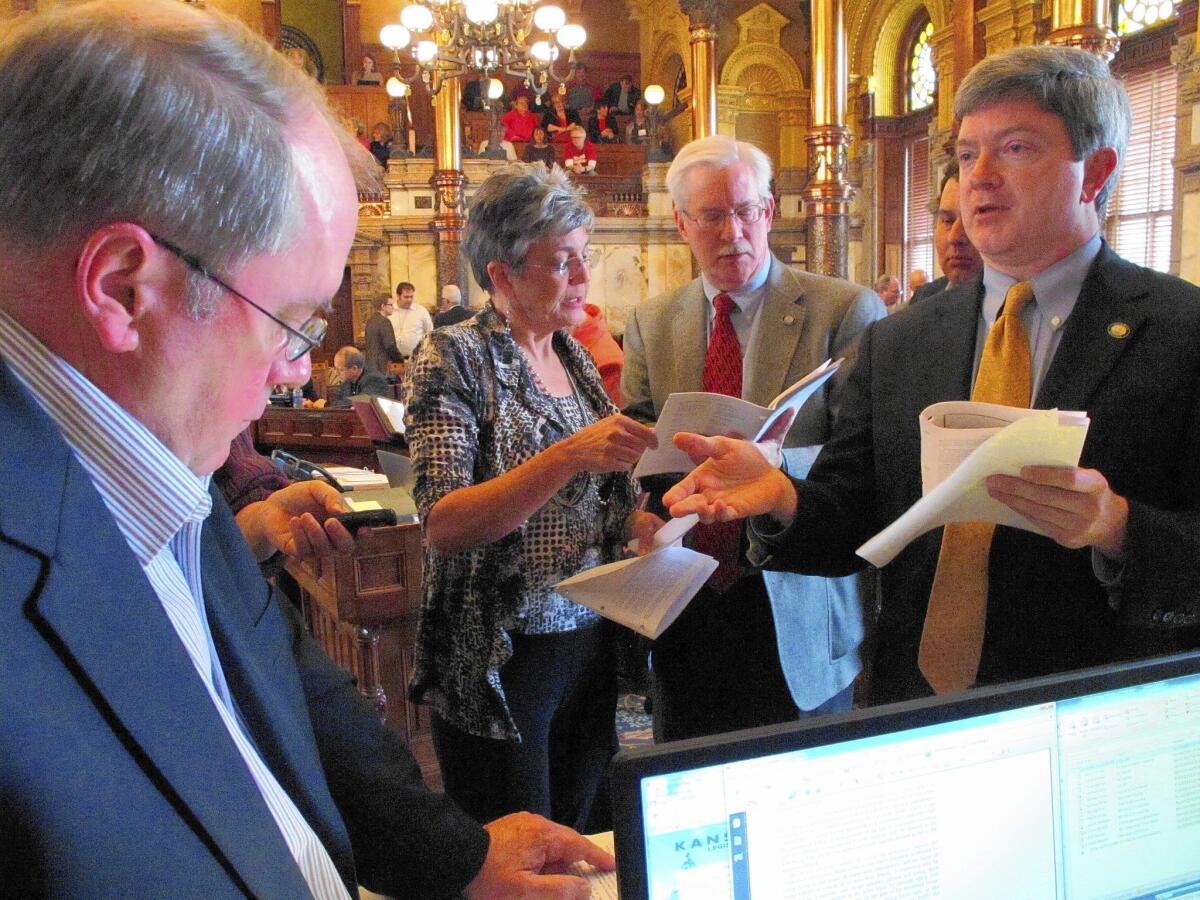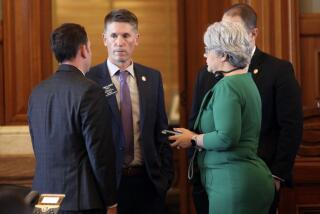Kansas educators upset over school funding bill

It seemed like a victory for Kansas educators when the state Supreme Court ruled last month that Kansas had created “unconstitutional, wealth-based disparities” among its school districts, and ordered the state to remedy the problem by July 1.
But the way the state has gone about complying with that decision leaves some educators feeling that they may be losing as much as they gain.
A school funding bill, passed by the Legislature after lengthy negotiations, awaits the signature of Republican Gov. Sam Brownback. It finds money to increase state aid to poorer districts, but also takes away aid to at-risk and non-proficient students. It also ends due process for public school teachers and gives businesses a tax credit for creating scholarships at non-public schools.
The legislation also allows wealthier districts to raise more money for their schools, which may in fact increase disparities between school districts, educators say.
“One of our issues with it is that they took money from at-risk funding in order to help pay for it,” said John Robb, a lawyer who represented the parents and students who had sued the state in the school funding case. “They took it from Peter to pay Paul.”
The Supreme Court decision was the culmination of years of legal wrangling about education funding in Kansas; the case that Robb litigated was the second such case to reach the state’s high court in the last decade.
In Kansas, the state decides how much each school district can spend on education, and then gives aid to districts that cannot come up with the money themselves.
But during the recession, the state cut that aid, making funding per student unequal in poor and rich districts, Robb argued in the case, Gannon vs. Kansas. He also argued that Kansas does not adequately fund education, but that part of the argument was sent back to a lower court for review.
Many lawmakers in the state’s Republican-controlled Legislature seemed loath to comply with the Supreme Court ruling. Rep. Marc Rhoades resigned as House Appropriations Committee chairman March 31 in protest of the bill.
“None of the spending is tied to measurable education outcomes,” Rhoades said in a statement about his reasons for stepping down.
The final bill was passed after a long weekend of negotiations that sometimes dragged on until 1 in the morning. Teachers unions are frustrated because the bill ends a process through which teachers are allowed to make their case at a special hearing if they are fired, something that was never publicly debated in the Legislature. A state teachers union has said that it will sue school districts that take advantage of this change.
“Many took great offense at the way this bill was handled, with stifled debate, votes occurring in the overnight hours, and an unannounced meeting of the committee after the press had left,” said Judith Deedy, one of the organizers behind a parents group, Game On for Kansas Schools.
The bill allows school districts to increase the amount they spend on education, but Deedy says that will only help wealthier districts that can raise taxes to pay for school. Poorer districts won’t be able to pass any new taxes on to residents.
The bill cuts funding for at-risk students who are 19 and over, which affects districts such as Kansas City, Kansas Public Schools, where many refugees attend school. About 90% of that district’s students are classified as at-risk. It also cuts funding for districts with non-proficient students, who are students who perform badly on tests but who are not poor.
“It’s a wash; we come out about $16,000 ahead,” said David Smith, a Kansas City, Kansas Public Schools spokesman, about whether the district will actually gain more money from the bill. “To me, it’s bad public policy, it’s bad policy-making.”
Brownback, up for reelection this year, has indicated that he will sign the bill.
“The school finance bill passed by the Kansas Legislature today fully complies with, and indeed exceeds, the requirements of the recent Kansas Supreme Court ruling for funding schools and providing equity,” he said in a statement.
Some educators are frustrated because Kansas implemented income tax cuts two years in a row. They say the state is making itself insolvent, which they know from experience will cause further cuts to education.
More to Read
Start your day right
Sign up for Essential California for news, features and recommendations from the L.A. Times and beyond in your inbox six days a week.
You may occasionally receive promotional content from the Los Angeles Times.







